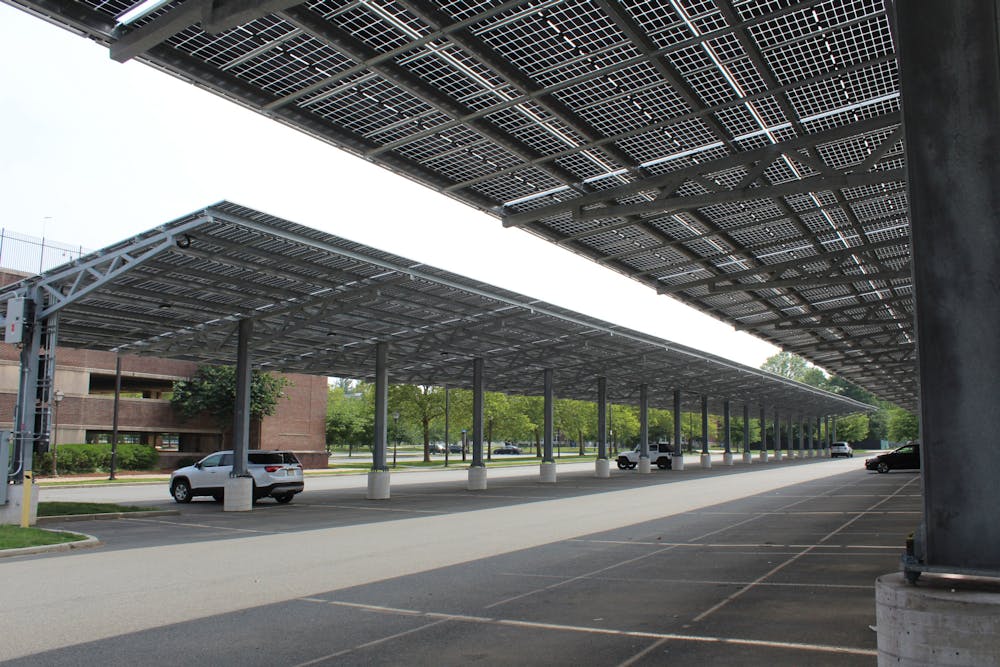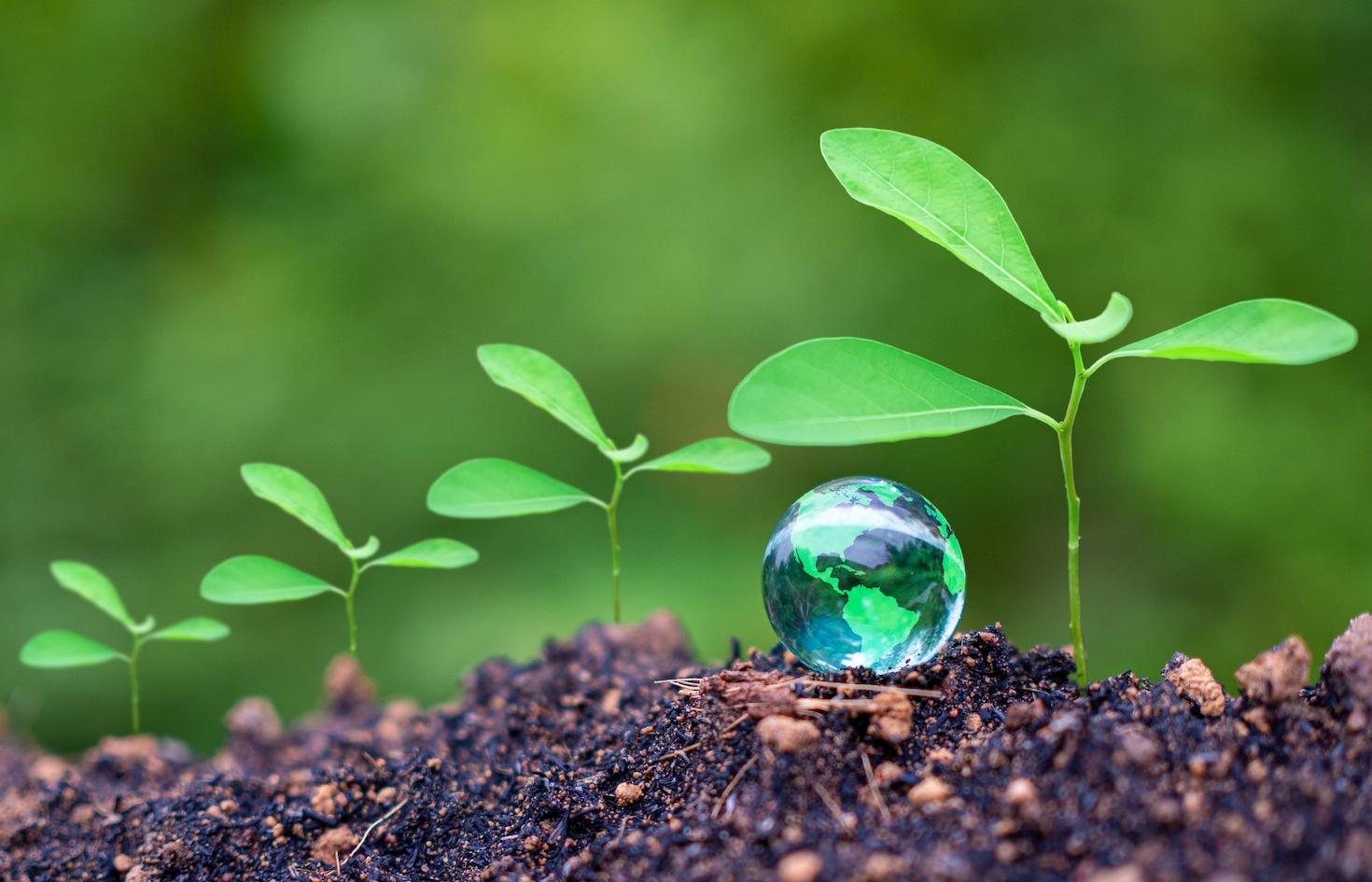- Home
- About
- Events
- News
- Get Involved
- Courses

Welcome to TCNJ's Campus as a Living Lab!
Potential benefits of CaLL:

What is CaLL?
In the Spring of 2007, President Gitenstein signed the American College & University Presidents’ Climate Commitment (ACUPCC) and established The Presidents’ Climate Commitment Committee (PCCC). This agreement develops a comprehensive plan to achieve climate neutrality for the TCNJ campus by launching tangible actions that will reduce greenhouse gas emissions. The committee has since transitioned into formal governance, and now officially operates as TCNJ’s Environmental Sustainability Council (ESC).
As a part of the ESC, Campus as a Living Lab (CaLL) is an institutional framework that uses the college campus as a core space for student learning. It follows a set of policies and practices geared toward environmental sustainability and facilitates interdisciplinary collaboration between faculty, staff, and students. Campus as a Living Lab links classwork and faculty research to campus policies and practices, creating an impactful change within the campus community and beyond.
Campus as a Living Lab (CaLL) works towards making TCNJ’s campus more environmentally friendly and promoting social justice throughout the campus community. The program implements several principles, policies, and practices to achieve its goals within colleges across the country. CaLL works with all who are a part of campus life, including faculty, staff, and students.
CaLL can be seen in several courses, faculty research, student organizations, and many acts across campus. CaLL’s influence at TCNJ promotes growth in environmental sustainability and climate justice.
The Campus' 4 Main Goals
There are 4 main goals of the CaLL (Campus as Living Lab) project:
Recycling and Waste Reduction
Not only has the campus implemented hydration stations that reduce the amount of plastic bottles being used, but they also implemented:

Ongoing events:
Pilot Turf and Landscaping Management Program
Through training from experts, and soil tests to learn about the current soil conditions and what needs to be done to improve soil quality, students and facilities staff will learn what it means to manage turf organically on a 1000-square-foot pilot area.
Contact: tcnjorganiclandmanagement@gmail.com
Native Wildflower Meadow
Through training from experts, students, facilities staff, and faculty will use this area to engage in learning about core sustainability ideas. This area will allow for new research on native plants, biodiversity, and more to be done, as well as offer a new recreation area for students, faculty, and the Ewing community.
TCNJ Marilyn Gray Early Childhood Education Outdoor Classroom
An area on campus by the Education building (the side that faces Forcina Hall), that combines meeting space with native plants and trees provides professors and students an area to engage in outdoor learning.
Research potential redesigns of Route 31 near campus
Professor Brennan (Engineering) and Professor Bates (Sociology), explore ways to make the entrances and roadways near campus more inviting and safer for pedestrians, cyclists, and other non-car traffic (such as skateboards) to reduce greenhouse gas emissions from private cars.
Upcoming events:
April 19: Climate Justice & Social Action Students Pollinator Planting from 10 am – 12 pm.
Green Lane Field Pedestrian Bridge, ANT/SOC 346 Climate Justice & Social Action Students lead a planting of pollinator Meadow with First Year CEL students and any other interested members of the campus community.
April 26: Climate Justice & Social Action Students Organic Landscaping from 12:30 – 2:30 pm.
ANT/SOC 346 Climate Justice & Social Action Students lead a planting of the Organic Landscaping Pilot Area for Earth Week with ECE 302 students and any other interested members of the campus community.

2024
- A college gardening group is bringing native plants back and ‘rewilding’ New Jersey | NPR Weekend Edition | 03.23.2024 - A greener campus: TCNJ produces cost-effective and sustainable energy | The Signal | 03.21.2024
Awards
TCNJ’s Environmental Sustainability Education Minor was accredited by the North American Association for Environmental Education (NAAEE), making it the first in the state of NJ to receive this honor.
Platinum NJ Smart Workplace Award Recipient 2018, GMTMA
399 Green Colleges 2018, The Princeton Review
PlanSmart New Jersey, Resource Efficiency Award for Campus Town, 2015

Contact Information
Students can get involved with the sustainability club and the CaLL project by working with professors for research, hands-on projects and more. Follow us on social media and attend any of our upcoming events to get involved with us ASAP!
Environmental Sustainability Club
The Environmental Sustainability Council is a club at TCNJ that advises in the strategic planning of College facilities, grounds, and emissions to continually improve the college’s environmental sustainability and green profile. The council acts as a resource to the educational programming of the College including opportunities for community-engaged learning. The Council, consisting of TCNJ faculty, staff, and students, has been engaged with a variety of projects and initiatives working towards climate neutrality for the TCNJ campus.
Follow us on Instagram to learn more about us and get involved:
Also, we have student-led groups:
Meeting Information
The ESC meets the first Wednesday of each month from 1:30 – 2:50 PM in Physics P122. Contact ESC co-chairs Shannon Graham or Paul Romano for information.
Here is a sample of open issues discussed at a meeting:
Improving transit and mobility to and from campus Sustainability in the curriculum TCNJ Campus Garden developments Sustainability projects

Relatable Courses Students Can Take
Transportation
Transportation I- Engineering, CIV41 – Thomas Brennan
Urban Sociology, SOC 320 – Diane Bates
Landscaping
Climate Justice and Social Action, ANT/SOC 346 – Miriam Shakow
Math and Science in Early Childhood Education, ECE 302 – Louise Ammentorp.
Counseling Children and Adolescents, EPSY 661 – Kathleen Grant
Biodiversity/Invasives Surveys
People and Plants, BIO 215 (Fall 2023) – Janet Morrison
The Biology of Seed Plants, BIO 341– Leeannn Thornton
Growing a Green Lens, BIO 370A – Wendy Clement
Graphic Design, Communication
Typography, AAV 252 (Fall 2023) – Annette Von Brandis
Under Interface Experience, IMM 420 – Annette Von Brandis
Writing for User Experience, JPW 250 – Kim Pearson
Conceptual Image, AAV 253 – Jason Alejandro
Ecocrit in Medieval Literature, Lit 499 – Glenn Steinberg
Intro to Public Relations, COM 261- Kelli Jean Smith


Leave a comment
You must be logged in to post a comment.